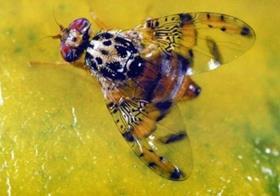
The US authorities have strengthened regulations on imports of Chilean fruit following a sharp increase in the discovery of Mediterranean fruit fly in US-bound consignments.
On 31 July, the Animal and Plant Health Inspection Service (APHIS) published an amendment to the existing protocol requiring all fruit grown in quarantined areas to be subjected to cold treatment. This effectively leaves for products for which there is no approved APHIS treatment banned from entering the US.
“APHIS is taking this action in response to multiple detections of Medfly in areas within Tarapaca (Region I), Coquimbo (Region IV) and Valparaiso (Region V) in Chile,” the organisation said in a press release.
The action primarily affects the export of clementines, grapes, lemons, mandarins, pomegranates and tangerines from the quarantine areas, which will now have to undergo treatment prior to shipment under treatment schedule T 107-a under the existing pre-clearance programme in Chile.
Fruit shipments from areas not under quarantine must be accompanied by a phytosanitary certificate issued by Chile’s national plant health authority, together with an additional declaration that the consignment was produced in a pest-free area for Medfly.
Before the detection of Medfly in these regions, the commodities listed above could be shipped to the US with inspection at the first port of entry and either methyl bromide fumigation treatment or under a systems approach to mitigate for Chilean false red mites.
“Due to the pest risk, APHIS has determined that additional entry requirements are immediately necessary to prevent the entry of Medfly into the US on all Medfly host commodities,” APHIS said.



